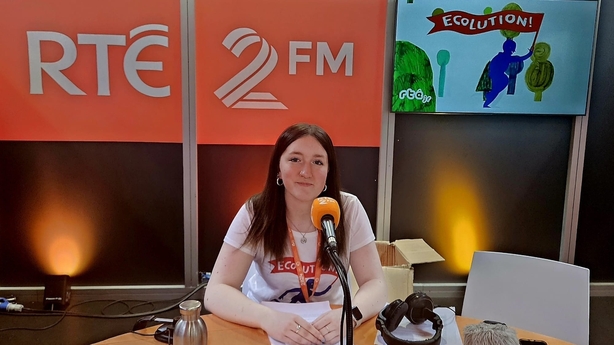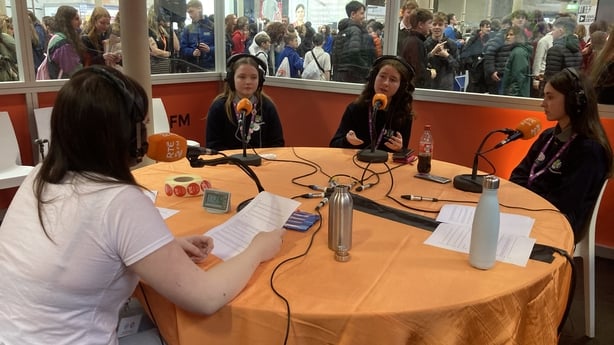We're back in the bustling hub of the BT Young Scientist and Technology Exhibition at the RDS for a special episode of Ecolution. This is Part 1 of a two-part special from the event, with Part 2 coming next week!
Join us for a whistletop tour through the exhibits and we meet the young brilliant people who produced the work. Plus, we have a studio discussion about the Internet, AI and how it can be used for both good and bad in communicating the climate crisis.
Press play up top and subscribe here, or wherever you get your podcasts!

Like year's past, so many of the projects fall into categories surrounding the climate crisis and sustainability. From helping sick trees to building cleaner and better ways to deal with pollution, the young exhibitors covered a lot of bases. We spent a whole day trying to gather just some of them, but there were too many to fit in one episode. So we’ve split the show into two parts, each with a different focus.
One theme that has definitely grown this year is projects in and around Artificial Intelligence and the Internet. The time we spend on screens and what we see and do online are clearly weighing on all of us. So we thought that we’d gather a selection of the students we met here to discuss it. The big question is really What things, both good and bad, are happening online that effect what we hear about the climate crisis? And what we can do about it too.
So, our first show is all about that. In studio we meet Kayla Joyce from Roscommon Community College who speaks about how to spot propaganda and greenwashing on social media. And Aidan and Niall from Gaelcholáiste Luimnigh discuss their project which aims to simplify companies Climate Policies so everyone can understand them.
Then we speak to Darragh, Lochlainn and Aaron from St Brendan’s in Offaly to learn more about EcoEdGames, there proposal for an educational game that can be used in school and at home to inform people about the facts and figures relating to the climate crisis.
Then, next week we turn our eyes towards the natural based world. We’ve looked into Rewilding a lot in the past few years. The concept of improving Ireland’s countryside and even our gardens to invite nature back in and use these nature based solutions to help combat the worst impacts of climate change.

As most of you may know, Ireland is a country that was once entirely covered in forest. At one point Native Woodlands covered almost 80% of our land! Across mainland Europe the average tree cover per country sits around 35%. But in Ireland now, just 11% of our country is covered in trees. And many of these trees are non native. Maeve, Naoise and Sadhbh from Athlone Community College join us to talk about the difference between monoculture forestry and the biodiversity benefits expanding our native woodlands could offer.
Rewilding is a subject that has split people’s opinions, often along urban and rural lines. With the passing of the EU’s Nature Restoration Law however, it’s also a subject that will have to be acted upon in a very broad way in the coming years.
Amy and Ella from St Marys in Macroom both come from a farming background and they join us to discuss their findings on how open to Rewilding farmers across the south west are.
And Cian, from ArdScoil Na Mara in Waterford talks all about Wolves, and what they’re reintroduction could do for our wild spaces.
Plus, we race around the stands to speak with as many students as we could about why these projects, initiated by young people, could really make a difference.
We'd really appreciate it if you could like, follow and review Ecolution wherever you stream it. It really helps get the word out.
Subscribe here, or wherever you get your podcasts!
And, did you know that we have lots more RTÉjr Podcasts for young people of all ages?
